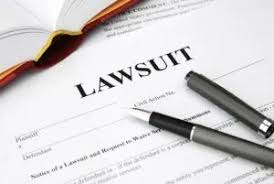There’s a hard truth about being a plan sponsor or a plan provider: you can be doing everything right and still get sued. That’s the world we live in—especially in the retirement plan space. You can dot every “i,” cross every “t,” and follow ERISA to the letter, but none of that guarantees you’ll avoid a courtroom or, at the very least, a legal headache.
I’ve seen it firsthand. A plan sponsor who took their fiduciary duties seriously—reviewed fees regularly, kept great documentation, and ran a tight ship—still got hit with a lawsuit. Why? Because a participant got confused or upset about something they didn’t understand, and they found a lawyer who was happy to take the case. And guess what? It didn’t matter that the claims had no merit. The lawsuit still needed to be defended. Time was wasted. Legal fees piled up. And stress levels skyrocketed.
I know a fiduciary who got sued not for something they did, but for something their predecessor did—a guy who literally stole plan assets the year before. No connection, no fault, no wrongdoing—just bad luck and bad timing. That’s what happens when an overly aggressive attorney is looking to make a name or a buck.
We like to believe that competence is protection, and to an extent, it is. If you’re a plan sponsor or provider doing your job well, you’ll likely come out on the other side of litigation unscathed. But that doesn’t mean you won’t have to go through it. Being right doesn’t prevent the lawsuit. It just improves your odds once you’re in it.
So yes, there are ways to reduce your risk:
· Document everything.
· Run regular fee benchmarking.
· Stay on top of investments.
· Communicate clearly with participants.
· Hire experienced service providers.
But let’s be clear—you can reduce risk, but you can’t eliminate it. You can do everything right and still find yourself on the receiving end of a complaint because someone misread a statement or didn’t update their address or just didn’t like what they saw in their account balance.
In the retirement plan world, doing a good job isn’t always enough. It just means you’ll have a strong defense when the lawsuit comes—which, unfortunately, is sometimes the best we can hope for.







